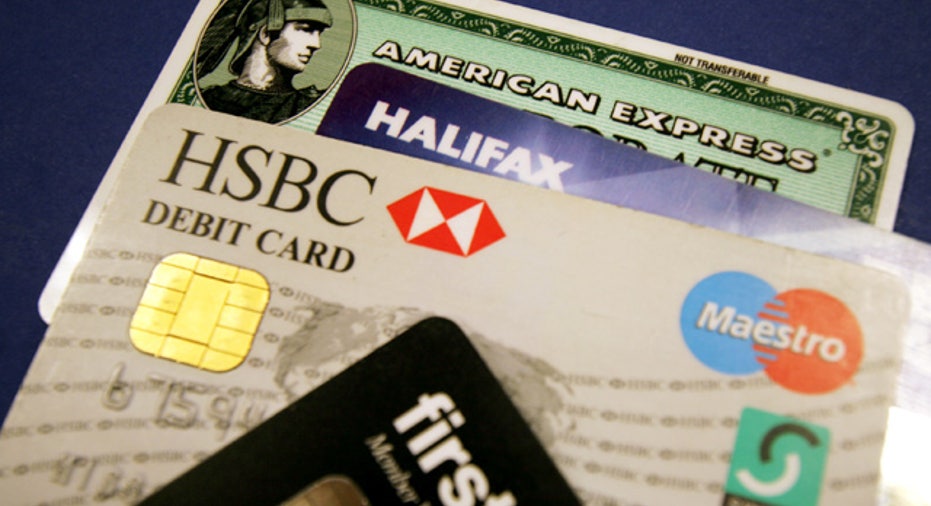Negotiate Your Way to Better Credit Card Terms

The honeymoon is over.
In the beginning of your relationship, when your credit card was all shiny and new, it attracted your attention by teasing you with a low interest rate and the promise of a lifetime of lavish rewards and lots of laughs. So you and your card hooked up, and at first, it was a match made in heaven. You took your credit card wherever you went, consulted with it before making major life purchases, and once spent a romantic weekend with it touring the Louvre and visiting the Eiffel Tower.
But lately, things have been different. You've noticed that your card has let itself go. It's put a few pounds on the interest rate and no longer seems eager to give you free airline rewards or triple points on gas and groceries. And you're naturally wondering if there are better credit card offers out there.
It doesn't have to be that way. You can negotiate with your credit card and reclaim some of the magic. But as with any relationship, plastic or human, it takes work. So if you want to negotiate with your credit card--OK, the credit card company--here's what you need to know.
Be prepared
Don't just get ticked off because you're paying 21% and believe you deserve 12% and cold-call the customer service line without thinking things through. Calmly get out your latest credit card statement and look it over before you call.
"Know how long you've been a customer, what your current fees are, and what your interest rate is," says Jim Camp, a negotiating coach in Vero Beach, Fla., who deals mostly in the corporate world and is the author of "Start with No."
"Write down some of your top benefits to the credit card company as a customer," Camp says. "For example, you are a loyal and longtime cardholder. You are employed and have the ability to pay them every month. Or perhaps you have a business account you are thinking of opening with them."
If you feel desperate, you can't show it
Camp says that it's important to remember, "You don't need this deal. You need water and food and shelter. Neediness is the No. 1 deal killer in negotiations. So remember that getting a lower interest rate, reduced fees, or debt reduction are not life-or-death needs. Internalizing this truth will put you in the right frame of mind--a neutral emotional state."
He advises that when you talk to a customer service representative on the phone you should stay calm and controlled during the conversation. "As long as you can control your emotions, you will have an advantage over or equal footing with the person you're speaking with," Camp says.
Stick to the facts
You may be a good person, maybe the best out there, but credit card companies deal with numbers. "The No. 1 mistake people make is bringing emotions into the negotiation," says Matt Wallaert, lead scientist with GetRaised.com, a website that helps people with salary negotiation.
"Your sob story is not your credit card issuer's problem. They don't care about 'why,' they care about 'what,'" Wallaert says. "To them, what matters is essentially a likelihood judgment: How likely are you to repay the money that you borrow from them? So you want to address that question as directly as possible, by providing evidence that is about your repayment fitness."
But emotions can never be completely divorced from any customer service interaction. The person on the other end of the line is just doing their job. Treat them like a jerk, and you can kiss your better terms good-bye. If you're a pleasure to talk to, however, and there is some minor rule that they're allowed to bend or break, maybe you'll get lucky.
The better the customer you are, the more leverage you have
That's probably obvious, but it can be easy to forget when you're feeling rightfully indignant--and financially dangerous if you've acted in a way that compromises your leverage in the credit card issuer's eyes.
In other words, if you're consistently late with your payments, and thinking, "Well, I'm late because I have an impossibly high interest rate and can barely afford to make my payments. If I had one of those low interest credit cards, I'd have more money every month, and I could pay my credit card on time," that may be true.
Nonetheless, your credit card company is only going to notice that you've been late a lot. They aren't going to lower your interest rate. They may even decide you're contacting them because you have financial problems and conclude, for instance, that this would be a good time to lower your credit limit.
On the other hand, if you've never been late, or very rarely, and your credit score is relatively high, you'll likely have better odds of receiving what you ask for. After all, in that case, you're a great customer. Your credit card company very much wants to keep you, and keep you happy.
Keep your expectations realistic
If a credit card has a rewards program, they aren't going to tinker with it beyond whatever formula they use, just as you aren't likely to be offered a 0% interest rate just for the asking, unless the company has been doing that as a promotional gimmick. But credit card companies want to keep their best customers happy, and they have flexibility.
Wallaert says that the easiest things to get leniency on are "fees, particularly late fees. If you can show that your late-paying behavior was a one-time issue by referencing your general on-time payment, you can most likely get (a late fee) removed."
You still may not look at your credit card quite the same way you once did, but at least you'll always have Paris.
The original article can be found at CardRatings.com:Negotiate your way to better credit card terms



















